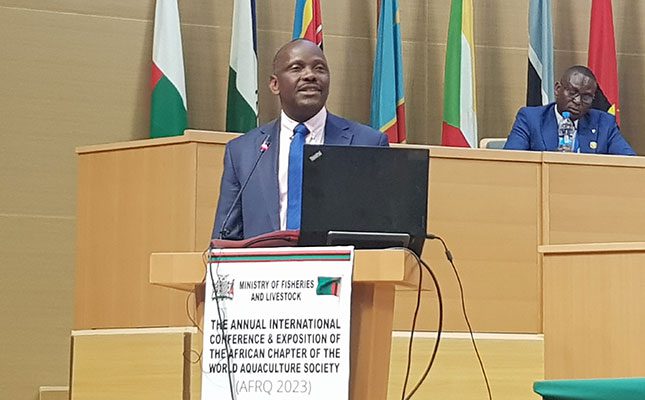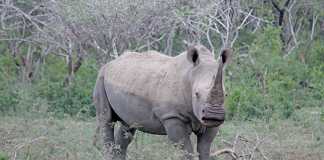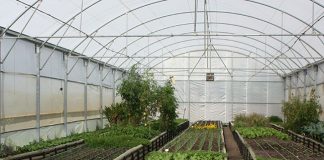
Photo: Jeff Kapembwa
The 2nd Annual International Conference and Exposition of the African Chapter of the World Aquaculture Society (AFRAQ), hosted last week in Lusaka, Zambia, noted that the fish and aquaculture sector had the potential to remedy Africa’s food sustainability with the collaboration of various players, amid the diminishing existing water spaces given the rising industrialisation.
The conference took place from 13 to 16 November, which showcased the country’s potential to grow its economy, emphasising the potential in the fisheries and aquaculture sector as opposed to traditional mining.
The intended diversification hinges on a number of aquafarms, as small and medium-to-large-scale operations continue to flourish in the country with the launch of the Fisheries and Aquaculture Policy 2022-2026.
Zambia is developing the aquaculture sub-sector to further contribute to food and nutrition security, employment creation and foreign earnings through fish exports. Zambia has stepped up efforts to promote an environment for investments by initiating a number of strategic public-service project activities to enhance and strengthen the aquaculture value chains.
Chikote noted that the shrinking existing natural water spaces for fish and aquaculture production needed innovation to sustain the sector and it was time that Zambia, like many other African countries, shared knowledge to close the poverty gaps and maximise on exports.
“Africa should share ideas on how to grow the aquaculture sector; it is high time for researchers, academics, doctors and other relevant experts to come together to share knowledge on the best practices so that we can help Africa become food self-sufficient,” he said.
“We as leaders in Africa have the political will to initiate policies that will grow the sector but we need you technocrats and think tanks to drive the agenda, we need you to actualise our dreams.”
Zambia plans to double its fish output to about 300 000m2 a year by 2026 from an average 30 000m2.
It envisions to further raise fish per capita from 11kg to 15kg by 2026 and hit 20kg by the close of the decade. However, it needed co-operation among players.
Chikote was mindful of the challenges frustrating the growth of the sector in Zambia, citing the lack of cheap, affordable capital; the fish disease burden; the high cost of fish feed; inadequate high-quality fingerlings, and slow investments in the sector.
He urged various players to look to Zambia for investment in the aquaculture sector with a pledge for enabling incentives and real return on investment.













